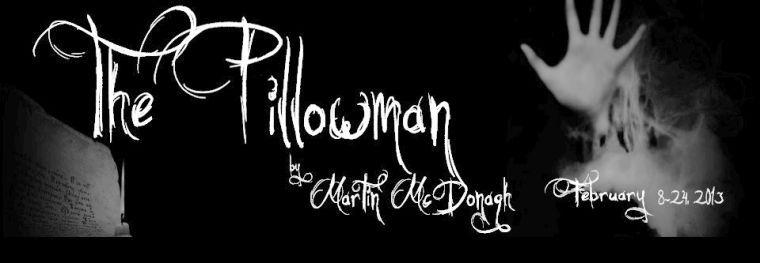The stories that we hear and tell are often disregarded until we realize that they have consequences, some of which are very grave.
When a horror writer in an Orwellian future finds himself at the hands of corrupt police officers for a crime he didn’t commit, he is faced with a decision – let his stories be told and face the penalties, or live with an absent legacy.
Theatre in the Park’s rendition of The Pillowman follows Katurian, a story teller played by David Ira Wood IV, who is accused of the gruesome murder of two children because the murders follow the lines of his stories. The performance was both dark and revealing, allowing questions to fester about death and legacy, mental health, and the value of storytelling.
“It’s not about being or not being dead, it’s about what you leave behind,” Katurian says to his mentally challenged brother, who is interrogated alongside him.
As he is on the brink of being killed during his en tire time in captivity, Katurian comes to the conclusion that preserving his stories is more important than his life, and will do anything to save them. He addresses the fact that no one knows their purpose on earth, and that a person’s legacy— for Katurian, his stories—are all anyone can assuredly leave behind.
The Pillowman goes out of its way to find an entrance into the mind of a serial killer, and making it relevant to many of the questions regarding gun rights that appear in the news daily. It tacitly asks who should be scrutinized when the line between reality and fiction becomes blurred.
Tony Pender, who plays Tupolski, a crooked cop with a soft side, delivered an out standing performance with very real character development. After playing the “bad cop,” to a good cop named Ariel, played by Michael Brocki, he comes to realize that he and Katurian aren’t so different.
The set felt somewhat dull, with just a table and props implying police torture, and it didn’t change much. It felt as though the stage, being fairly large, was not put to its best use, and actors stayed fairly stationary.
However, what was great to watch was the theatre’s use of film as a precursor to each act. Although it wasn’t a replacement to a more vibrant setting, Super 8-esque home videos were used tastefully, and told the story of Katurian’s life, which was as horrific as the world he lives in.
The second act was definitely the most powerful, with just Katurian and his brother Michael, who was played by Samuel Whisnant. The two actors played well off of one another, and Whisnant did an excellent job at the extremely tricky role of a mentally challenged adult. It seemed that Michael represented the innocence of the world that existed, even during such a dystopian future.
The play did well at telling a story about telling stories, and managed to ask important questions, while leaving playgoers with their own.








